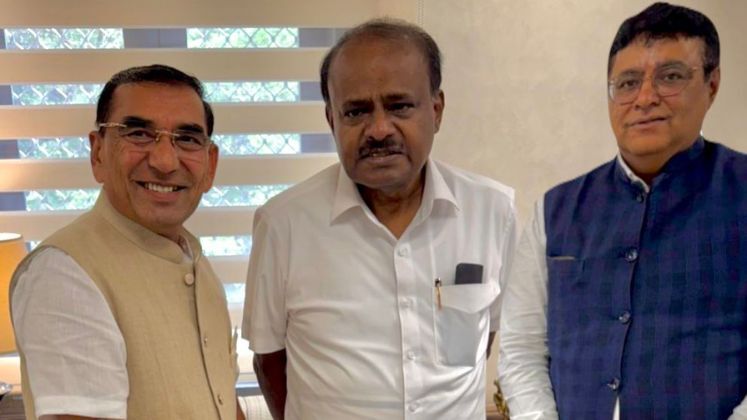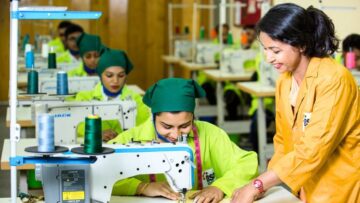
Citing worries about the Quality Control Order’s (QCO) possible effects on the development of the textile industry and technical innovation, the Southern Gujarat Chamber of Commerce and Industry (SGCCI) has formally petitioned the Central Government to remove the QCO from textile machines.
SGCCI Vice President Ashok Jirawala and former President Ashish Gujarati made their suggestion to the Union Minister for Heavy Industries, H.D. Kumaraswamy, and Joint Secretary Vijay Mittal during a high-level meeting in New Delhi.
According to the agency report, officials from well-known industry organisations such as FICCI, ASSOCHAM, Gujarat Chamber of Commerce and Industry (GCCI), and Arvind Mills also attended the meeting and unanimously supported the elimination of QCO on textile machines.
India’s textile sector, currently worth US $ 165 billion, is expected to grow to US $ 350 billion by 2030, according to the SGCCI delegation. The industry will need about 4.5 lakh high-speed weaving machines to reach this growth target, which would need an estimated US $ 15 billion in investment. The minister was also presented with a list of machines that are necessary for importation but are not produced in India.
According to Ashok Jirawala, embroidery technology is constantly changing, and equipment frequently needs to be upgraded every two to three years. Indian businesspeople rely significantly on imports because many of these sophisticated machines are not made in their country. They therefore underlined how important it is that embroidery machines be exempt from QCO rules.
The minister was also told by GCCI representatives that a number of business owners have already reserved machines from overseas and opened Letters of Credit (LCs). The machinery will be kept at ports and cause large financial losses if delivery of these machines takes place after 28th August 2025, and QCO is still in operation. Additionally, banks might be reluctant to fund these kinds of projects, which could impede the expansion of the industry.
After the presentation, the joint secretary and Minister Kumaraswamy gave a positive response and promised to take the user industry’s concerns into account. Before making a final judgement, the Ministry of Textiles would communicate with all parties involved, they stressed.
For Surat and the greater Indian textile industry, this invention is regarded as a crucial step that might speed up innovation and manufacturing efficiency in the entire industry.






